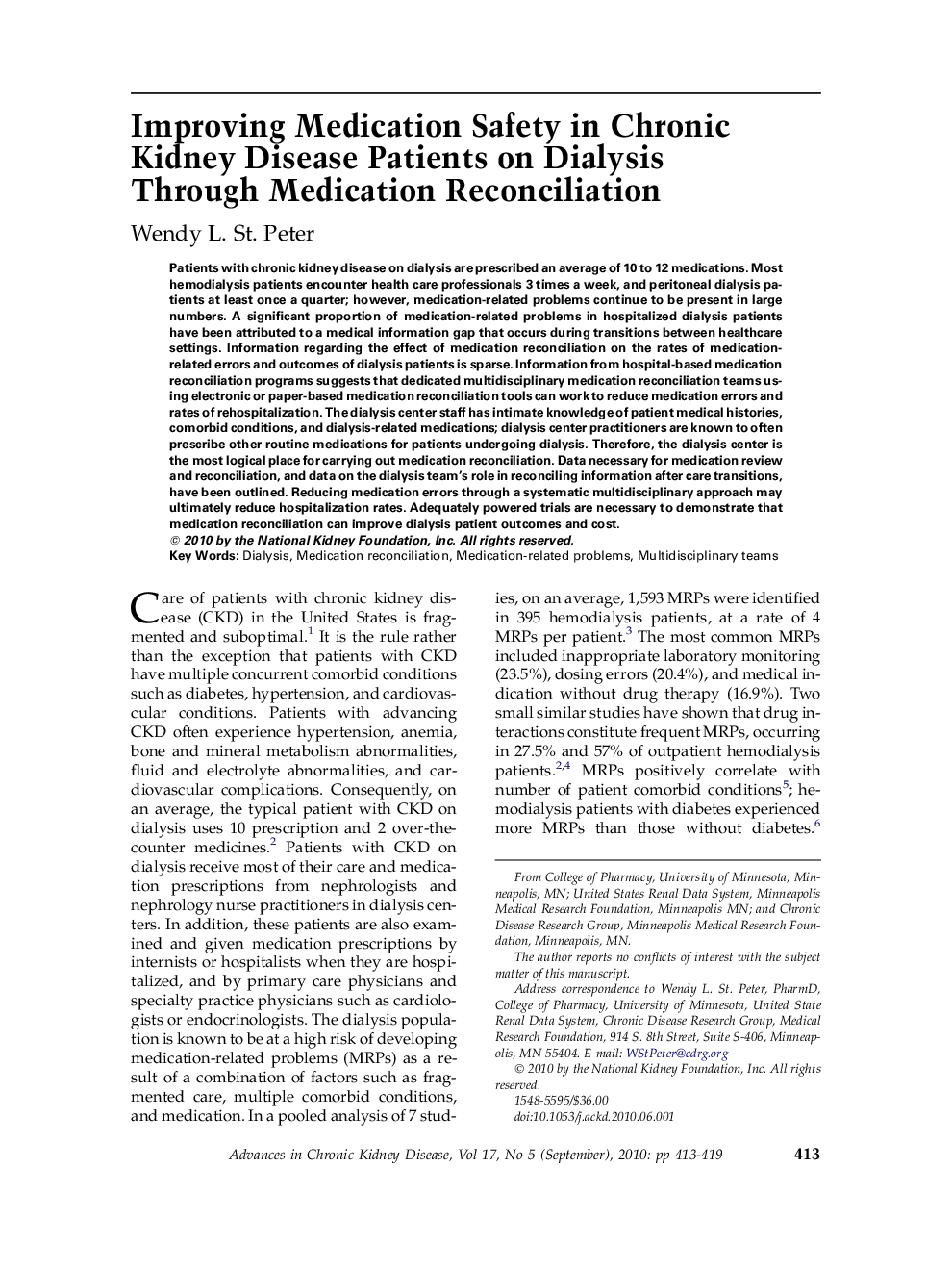| Article ID | Journal | Published Year | Pages | File Type |
|---|---|---|---|---|
| 3847142 | Advances in Chronic Kidney Disease | 2010 | 7 Pages |
Abstract
Patients with chronic kidney disease on dialysis are prescribed an average of 10 to 12 medications. Most hemodialysis patients encounter health care professionals 3 times a week, and peritoneal dialysis patients at least once a quarter; however, medication-related problems continue to be present in large numbers. A significant proportion of medication-related problems in hospitalized dialysis patients have been attributed to a medical information gap that occurs during transitions between healthcare settings. Information regarding the effect of medication reconciliation on the rates of medication-related errors and outcomes of dialysis patients is sparse. Information from hospital-based medication reconciliation programs suggests that dedicated multidisciplinary medication reconciliation teams using electronic or paper-based medication reconciliation tools can work to reduce medication errors and rates of rehospitalization. The dialysis center staff has intimate knowledge of patient medical histories, comorbid conditions, and dialysis-related medications; dialysis center practitioners are known to often prescribe other routine medications for patients undergoing dialysis. Therefore, the dialysis center is the most logical place for carrying out medication reconciliation. Data necessary for medication review and reconciliation, and data on the dialysis team's role in reconciling information after care transitions, have been outlined. Reducing medication errors through a systematic multidisciplinary approach may ultimately reduce hospitalization rates. Adequately powered trials are necessary to demonstrate that medication reconciliation can improve dialysis patient outcomes and cost.
Related Topics
Health Sciences
Medicine and Dentistry
Nephrology
Authors
Wendy L. St. Peter,
